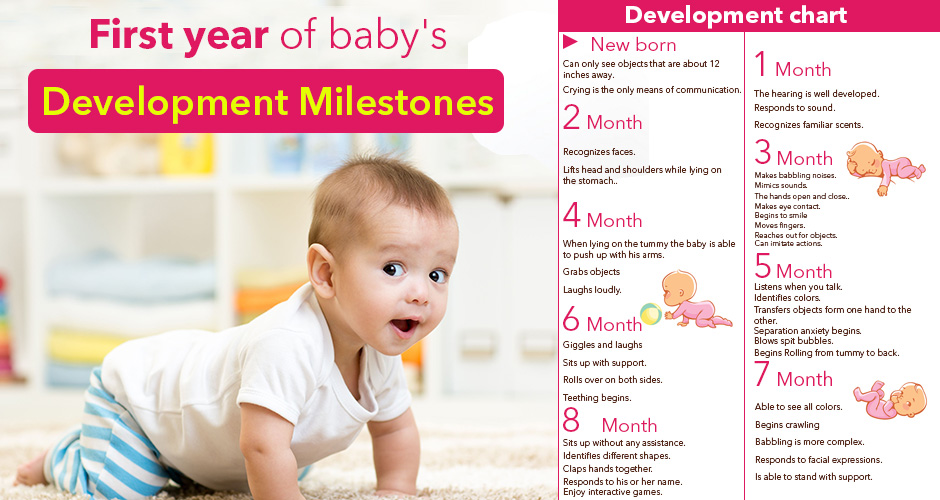 Source: bing.com
Source: bing.comAs parents, we always want to make sure that our children are developing properly, especially in their first years of life. One of the most crucial stages is when they turn one year old. At this age, babies are starting to explore the world around them and their brain is developing rapidly. In this article, we will dive into the different aspects of a one year old baby development and what to expect as your little one grows.
Table of Contents
Physical Development
By the time your baby reaches one year old, they will have developed many physical skills. They will be able to sit up, crawl, stand up while holding onto furniture, and even take their first steps. Their hand-eye coordination will also have improved, allowing them to pick up small objects with precision.
At this stage, it’s crucial to provide your baby with plenty of opportunities to practice their newfound physical skills. This can include having them play with balls, crawl tunnels, and soft play mats. You can also encourage them to walk by holding their hands and guiding them.
Language and Cognitive Development
Babies at this age are like little sponges, absorbing everything around them. They will understand more words than they can say, and may even be able to say a few simple words themselves, such as “mama” or “dada.” They will also be able to follow simple instructions, such as “wave bye-bye.”
To encourage your baby’s language and cognitive development, talk to them often and read to them. Point out objects and name them, and encourage them to repeat the words. You can also play simple games with them, such as peek-a-boo, which helps to develop their cognitive skills.
Social and Emotional Development
Babies at this age are becoming more aware of the people around them and are beginning to develop social and emotional skills. They will start to show affection, such as giving hugs or kisses, and may become shy around strangers.
To support your baby’s social and emotional development, provide them with plenty of opportunities to interact with others. This can include playdates with other children or spending time with family and friends. You can also encourage them to express their emotions by being responsive to their needs and providing comfort when they’re upset.
Nutrition
As your baby grows and becomes more active, their nutritional needs will change. At this age, they should be transitioning to solid foods and eating a variety of fruits, vegetables, and proteins. It’s important to make sure they’re getting enough iron, which is crucial for brain development.
To ensure your baby is getting the right nutrients, offer them a variety of healthy foods and avoid processed and sugary foods. You can also talk to your pediatrician about adding supplements, such as iron or vitamin D, to your baby’s diet.
Conclusion
The first year of a baby’s life is full of exciting changes and milestones, and the one year mark is no exception. By understanding the different aspects of a one year old baby development, you can support your little one’s growth and ensure they’re reaching their full potential. Remember to provide plenty of opportunities to practice physical skills, encourage language and cognitive development, support social and emotional growth, and provide a healthy and balanced diet.
Frequently Asked Questions
Q: What are the normal physical developments for a one year old baby?
A: At one year old, babies should be able to sit up, crawl, stand up while holding onto furniture, and even take their first steps. Their hand-eye coordination will also have improved, allowing them to pick up small objects with precision.
Q: How can I support my baby’s language and cognitive development?
A: Talk to your baby often, read to them, and encourage them to repeat words. You can also play simple games with them, such as peek-a-boo, which helps to develop their cognitive skills.
Q: What should my baby be eating at one year old?
A: At this age, babies should be transitioning to solid foods and eating a variety of fruits, vegetables, and proteins. It’s important to make sure they’re getting enough iron, which is crucial for brain development.
Q: How can I support my baby’s social and emotional development?
A: Provide them with plenty of opportunities to interact with others, such as playdates or spending time with family and friends. Encourage them to express their emotions by being responsive to their needs and providing comfort when they’re upset.
Q: How can I make sure my one year old is getting the right nutrients?
A: Offer them a variety of healthy foods and avoid processed and sugary foods. Talk to your pediatrician about adding supplements, such as iron or vitamin D, to your baby’s diet.
